Ant farming in Thailand: back to the future or smart use of the past?
Thailand focuses on climate-smart solutions, including sustainable agricultural production systems which lead to good productivity and safer products. More and more Thai realise that the future for agricultural production is precise, organic, alternative, innovative, resilient, and regenerative. To get the best results, the Thai are combining local wisdom with innovation. An example is their transition from harvesting ant eggs in the wild to ant husbandry.
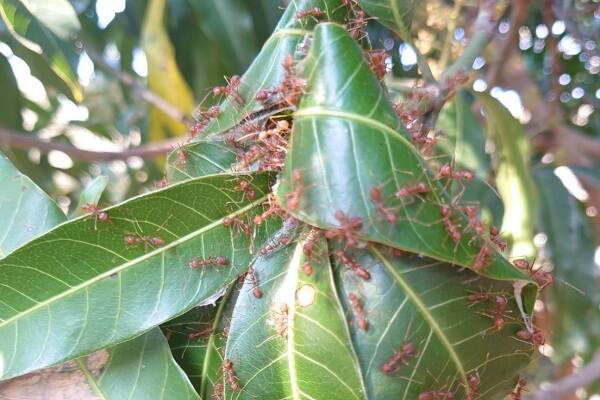
Agriculture in Thailand is important. The main agricultural products are: rice, cassava, palm oil, rubber, sugarcane, maize, tropical fruits (durian, pineapple), vegetables, orchid, poultry, dairy, swine, tuna and freshwater fish. But more diversification in crops and adaption of production systems is still necessary. Production is mainly rainfed and sometimes irrigation is used.
Bio-Circular-Green Economic Strategy
Thailand has developed a Bio-Circular-Green Economic Strategy (BCG). Its goal is to promote sustainable agriculture and use of biodiversity, clean energy, responsible consumption and production and conservation of national resources (ecosystem). Nature-inclusive agriculture fits perfectly in this strategy. As a result, examples of innovative sustainable projects are increasing in number. They include:
- Biogas production from biomass and waste from livestock (swine, etcetera.).
- Zero-waste cassava and sugarcane value chains (cassava/sugar is used in the food and animal feed industry, for energy (bioethanol), as bio-degradable packaging, etcetera.
- Sustainable rice production platform (efficient water management, staple food, rice bran oil, rice husk for fuel, energy & biomass, growing substrate).
- Rotating cropping systems (in rice, soya, maize, cassava).
- Agroforestry in the coffee plantations (shade of the trees for especially the younger coffee plants).
- Combination cropping in oil palm plantations.
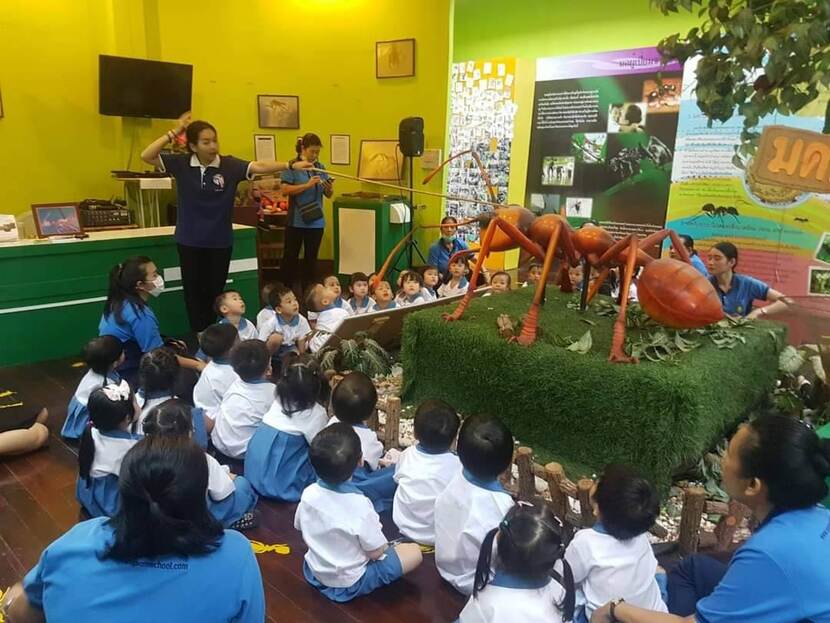
‘Thailand wants clean energy, responsible consumption and production, conservation of national resources (ecosystem) and nature-inclusive agriculture’
Ant eggs as traditional ingredient
Another project particularly worth mentioning involves the nature-inclusive production of ant eggs. In several provinces in Thailand farmers and villagers have harvested the eggs of weaver ants for centuries. Weaver ant eggs are an ingredient in many traditional and local recipes, such as omelets, soups, and salads. They are usually collected from trees in the forest (wild harvest) from January to May.
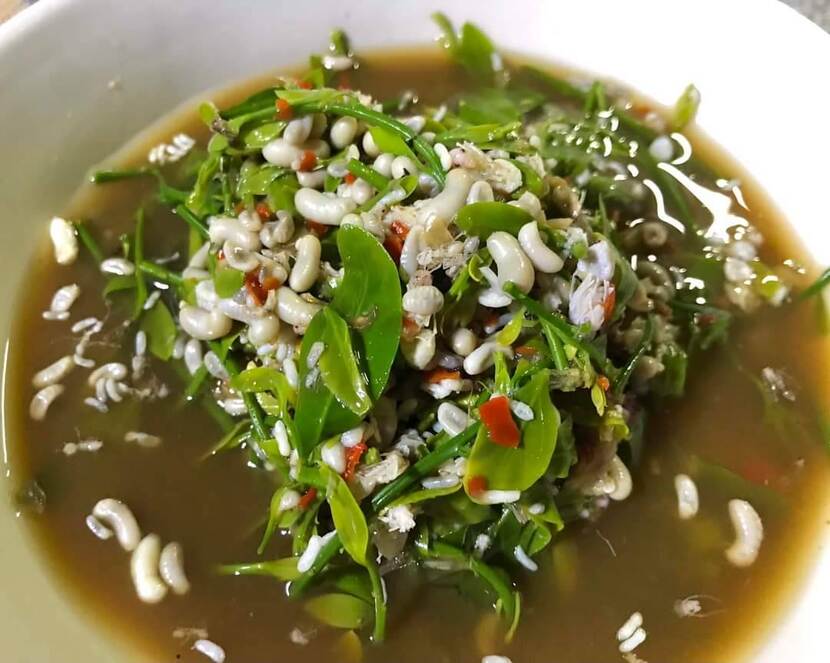
Wild versus farming harvesting
The popularity of eating weaver ant eggs is growing significantly. However, over-harvesting in the wild has negative ecological implications. Dr. Decha Wiwatwitaya from the Department of Forest Biology, Kasetsart University: ‘As the demand is higher than what nature can supply, collectors are having more difficulties finding enough weaver ants in the forest. The population of weaver ants is decreasing as well. To deal with this, the Thai have developed the concept of ant farming.’ The methods are developed in close collaboration between scientists and the knowledge of local communities.
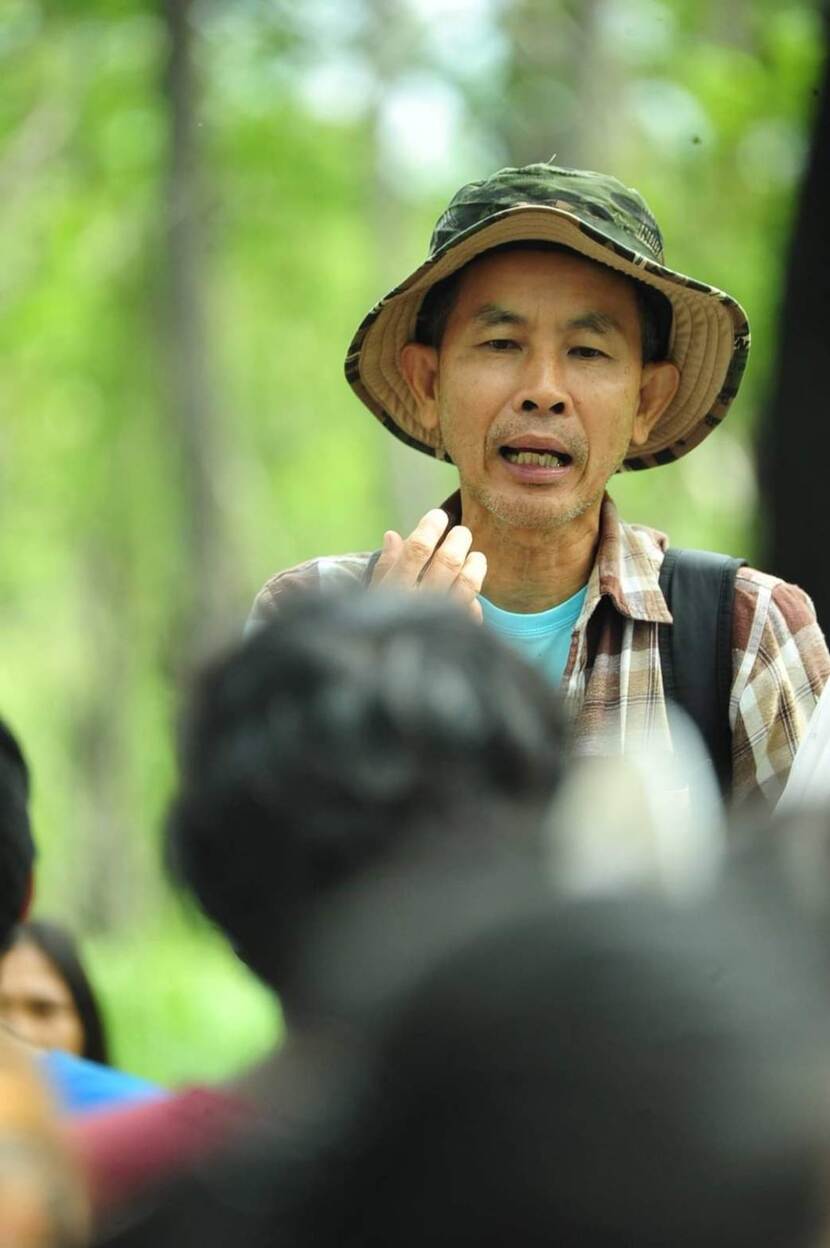
Ant farming in tropical fruit plantations
Weavers ants thrive on tropical fruit. Therefore, tropical fruit plantations are suitable locations for ant farming. Tropical fruit farmers not only benefit from weaver ant farming through additional income from the sale of ant eggs but also from the reduced use of pesticides use since weaver ants are an efficient biological control agent against more than 50 pest species. It also prolongs the harvesting period.
Dr. Decha: ‘Ant farming requires simple management techniques which local people can use and transfer to the next generation. A simple management tool is constructing special ant highways by linking the trees in the plantation with natural ropes. These ant highways have a positive effect on the multiplication of ant nests, which leads to increasing productivity (eggs, larvae, pupae). Thanks to the highways ants can conserve energy by not leaving their habitats (trees) and are also protected from ground-based natural enemies.
All year round supply
The Thai have been quite successful with ant farming so far. Local wisdom by farmers and villagers learned how to continue the production after harvesting the eggs, larvae and pupae. According to Dr. Decha, they have learned how to take care of the ant queen so she can form new colonies. In this way, it is possible to have an almost year round supply of ant eggs. In the wild collectors harvest about 200 to 300 grams of ant eggs (the larval and pupal stages) per nest. And only in the period from January to May. Farm harvesting yields about 1 to 2 kg per nest.
As a result, several provinces have developed training programs to provide technical advice to farmers and villagers on weaver ant farming. The training is a collaboration of different stakeholders such as the Department of National Parks, Wildlife and Plant Conservation, Royal Forestry Department, Thailand Institute of Science and Technological Research and Kasetsart University.
This is an example how in Thailand knowledge and use of older production methods combined with innovations and technology will and can make future agricultural production safer, more resilient, and sustainable.
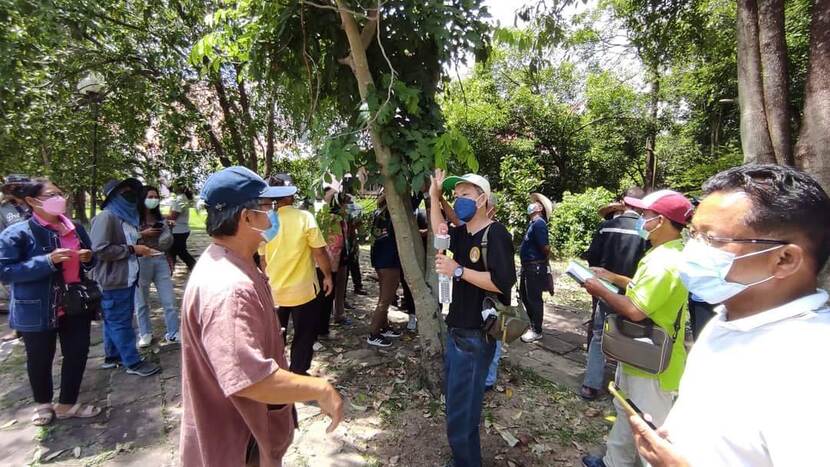
Contact
Would you like to know more about the current developments in the domain of agriculture and nature in Thailand or contact the agricultural team at the Netherlands Embassy in Bangkok?
You can visit the country page of Thailand at the website agroberichtenlandbuitenland.nl of the Netherlands ministry of Agriculture, Nature and Food Quality. You can also send an email to BAN-lnv@minbuza.nl
This article is part of the latest edition of e-magazine Agrospecial (June 2023) about nature-inclusive farming. The teams of our Netherlands Agricultural Network showcase nature-inclusive practices and initiatives in 36 countries worldwide. They delve into the development, benefits and challenges of this innovative farming approach. Each team has a different story to tell. Click here to read more about insights into the potential of nature-inclusive farming practices worldwide!